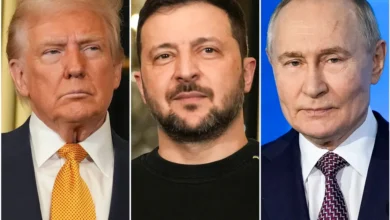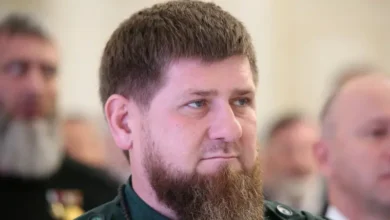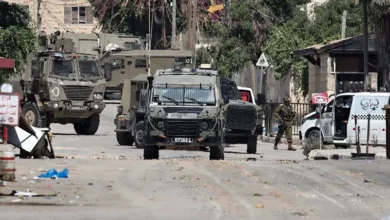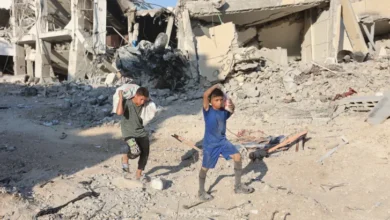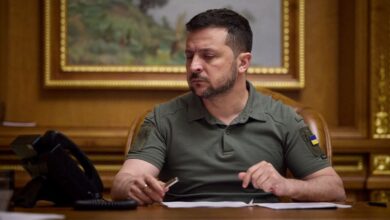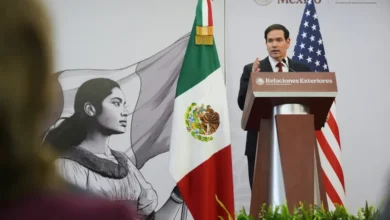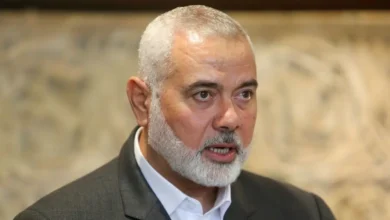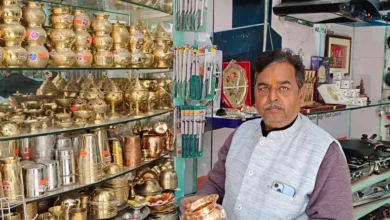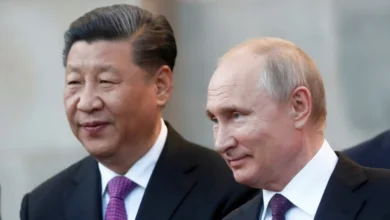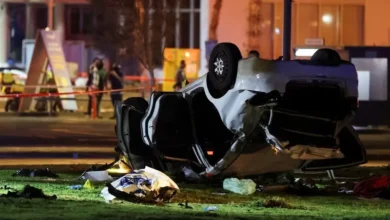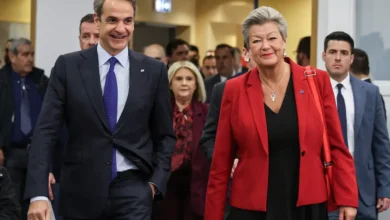Who is Pavel Rubtsov, the journalist released in Russia-West prisoner swap?
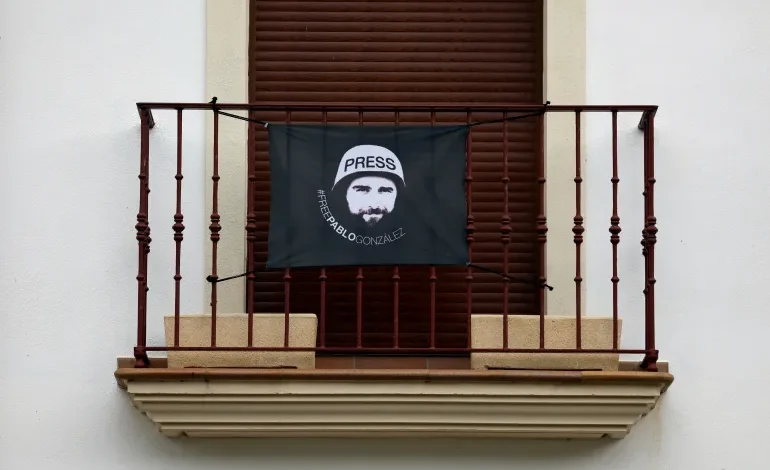
A bald, bearded man carrying two backpacks walked down the stairs of a plane before he extended his right hand in a greeting.
His black T-shirt had an image of a stormtrooper, a soldier from George Lucas’s Star Wars movies. Below the character, there were four words: “Your empire needs you.”
The 42-year-old Pablo Gonzalez Yague, also known as Pavel Rubtsov, a Spanish-Russian journalist – and apparent Star Wars fan – was part of the biggest prisoner swap between Russia and the West since the Cold War.
Awaiting his arrival and also extending his hand at Moscow’s Vnukovo International Airport was Russian President Vladimir Putin.
Twenty-six people were part of the August 2 exchange, including Vadim Krasikov, an alleged hitman for Russia’s Federal Security Service (FSB), Wall Street Journal reporter Evan Gershkovich, and Russian opposition politicians Vladimir Kara-Murza and Ilya Yashin.
The last two are said to be targets of Rubtsov’s reports to his Moscow handlers.
Rubtsov, whom the Polish security services have accused of working for Russia’s military intelligence, has never admitted to being a Russian spy.
He was arrested on February 27, 2022, in the Polish city of Przemysl while reporting on the inflow of Ukrainian refugees after Russia’s invasion.
At the age of nine, after his parents divorced, he moved with his mother to Spain. He settled in the Basque country and then, Catalonia. After getting Spanish citizenship, he also got a new name: Pablo Gonzalez Yague. But he never gave up his Russian passport.
In Spain, he studied Slavic and security studies; married a Basque woman, Oihana Goiriena, with whom he had three children; and began his career as a journalist.
Goiriena has not been Rubtsov’s partner since at least 2016.
He worked for several Spanish media outlets, such as as La Sexta and Publico, and specialised in conflicts in the former Soviet Union. He covered the annexation of Crimea, the Nagorno-Karabakh conflict between Azerbaijan and Armenia, and other separatist republics in the region.
“He identified as a Basque, a Spaniard, a Catalan and a Russian. He found space within himself for all these identities,” a friend of Rubtsov’s who requested anonymity told Al Jazeera.
“He was intelligent, bright and had a great sense of humour. It was a pleasure to spend time with him whether you wanted to watch football, a political debate or dance. People flocked to him.”
After his arrest, rights groups, including Reporters without Borders and Amnesty International, criticised Poland for holding him in prison without trial. In Spain, his release was met with enthusiasm.
“His arrest, although no evidence was provided, was justified on the basis of suspicions of espionage in favour of Russia, which could not be proven,” the Federation of Journalists Associations of Spain, the largest Spanish journalistic organisation, wrote.
